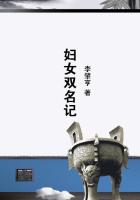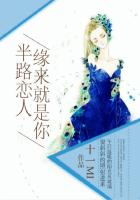Thus every sensation is accompanied with the idea of duration, and yet duration is not a sensible idea, since it also accompanies ideas of internal consciousness or reflection; so the idea of number may accompany any sensible ideas, and yet may also accompany any other ideas as well as external senses.Brutes, when several objects are before them, have probably all the proper ideas of sight which we have without the idea of number.(3) Some ideas are found accompanying the most different sensations, which yet are not to be perceived separately from some sensible quality, {70} such as extension, figure, motion, and rest, accompany the ideas of sight or colors, and yet may be perceived without them, as in the ideas of touch, at least if we move our organs along the parts of the body touched.Extension, figure, motion, or rest, seem therefore to be more properly called ideas accompanying the sensations of sight and touch than the sensations of either of these senses, since they can be received sometimes without the ideas of color, and sometimes without those of touching, though never without the one or other.The perceptions which are purely sensible, received each by its proper sense, are tastes, smells, colors, sound, cold, heat, &c.The universal concomitant ideas which may attend any idea whatsoever are duration and number.The ideas which accompany the most different sensations are extension, figure, motion, rest.These all arise without any previous ideas assembled or compared g, the concomitant ideas are reputed images of something external.From all these we may justly distinguish those pleasures perceived upon the previous reception and comparison of various sensible perceptions with their concomitant ideas, or intellectual ideas, when we find uniformity or resemblance among them.These are meant by the perceptions of the internal sense." ("Nature and Con duct of the Passions," Sect.I.)This note comprises the result and the sum of much reading and much reflection.The principal thoughts, more especially as to the separation of the ideas of number and duration, and of extension, figure, motion, and rest from our common sensations, are taken, directly or indirectly, from Aristotle's " Psyche," B.II.c.vi.(which is not referred to, however), where there is a distinction drawn between common and proper percepts.But he seems to take a step beyond Aristotle when he tells us here, and still more expressly in his " Logic," that number and duration can be perceived both by the external and internal sense.It has been felt by all profound thinkers, that in order to account for the phenomena, and to save the senses from deceiving us, there must be distinctions of some sort drawn between different kinds of sensations or perceptions.Adopting the distinction of Aristotle, we find him in his " Logic "identifying it with that of Locke, between the primary and secondary qualities of bodies.It may be doubted whether we can so {71} absolutely divide, as Aristotle and Hutcheson did, the accompanying ideas from the sensations or perceptions.The sensations and ideas are in every case wrapped up in one concrete cognitive act, while, however, the may come tip in a different t, y concretion in our next experience, and may be separated into elements by an analytic process.I rather think, too, that the perception of extension (as has been shown by Hamilton) is involved in all our sense-perceptions, for we seem to know our organism as in space and localized by every one of the senses.The language about the motions of bodies constituting the <occasion> of the perceptions in the mind, proceeds upon the inadequate distinction between efficient and occasional cause, drawn by the disciples of Descartes, -- a distinction adopted by Reid as well as Hutcheson.I suspect that it still remains true, that the common division of our external senses is very imperfect, and that it is not easy to arrange our sensations into classes.
同类推荐
热门推荐
半路恋人:缘来就是你
风过云生处,何人不起愁。叶十一:他们说,人这一生总会经历悲伤与磨难,而后才能否极泰来,一世安稳。可是,为何我活到现在,所经历的只有痛苦与哀愁?爱而不得,恨而不能,心绪难寄。徐可,我到底该不该信你?有一种人很美好,他曾让你对明天有所期待,最终却没有出现在你的明天里;也有一种人很踏实,他会在往后的岁月中给你更长久的幸福,虽然他不曾来过你的青春。对于前者,我们要彼此祝福,对于后者,我们请温柔等待。风雨隋朝:隋文帝杨坚传奇
尽道隋亡为此河,至今千里赖通波。若无水殿龙舟事,共禹论功不多较。—皮日休《汴河怀古》土坟数尺何处葬,吴公台下多悲风。二百年来汴河路,沙草和烟朝复暮。后王何以鉴前王,请看隋堤亡国树。—白居易《隋堤柳》两首诗写着同一个人—隋炀帝杨广。仁寿四年,杨广经过数十年蛰伏和潜心谋略终于登上帝位,改元大业,誓要成就千秋伟业,从而拉开了其波澜壮阔而又毁誉难定的一生。14年,他修建东京迁都洛阳、掘长堑置关防、修驰道筑长城、开凿大运河、巡游江都、出塞突厥经通西域、三征高丽,最后众叛亲离,天下大乱。一个辉煌一时气象万千的大隋王朝国运戛然而止,隋炀帝也成了亡国之君。大业年间创大业,千秋功罪后人评。腹黑王爷装呆萌:寞寞者上钩
乔寞寞这不知道自己造了什么孽,只是办个身份证,就被车撞死,死了也就算了,穿越又是神马子?穿越也就算了,她还偏要替她妹嫁给一个傻王爷!她要逃婚!她要农民起义!结果只是徒劳,成婚那天就被呆萌王爷给萌化了心...可傻子也能成才啊!她嫁入那四个月都不到,那王爷就会舌吻了!!是她教得好啊~刷的吗得!她好像只加他琴棋书画来着!?















